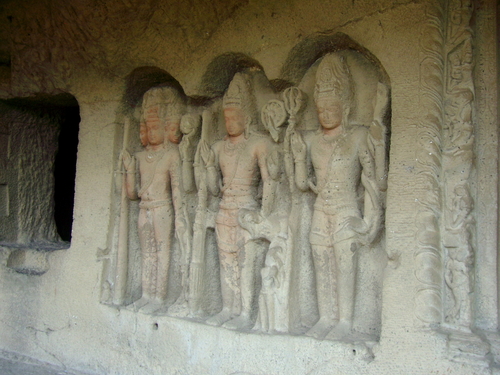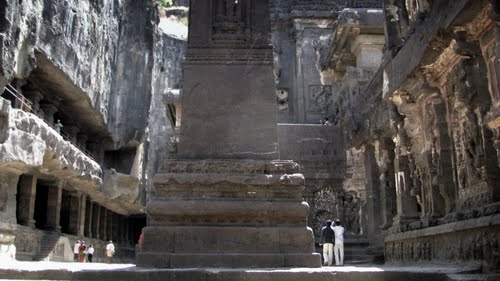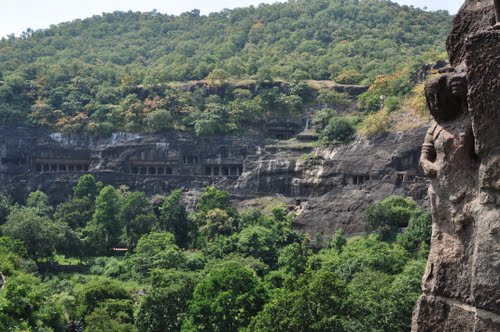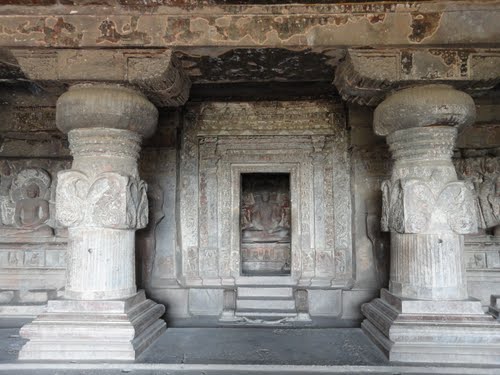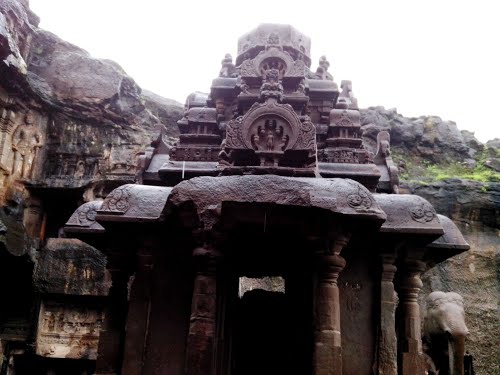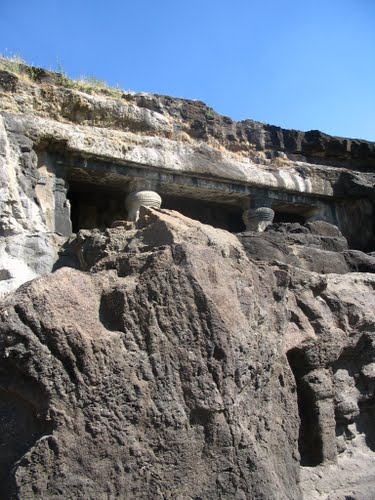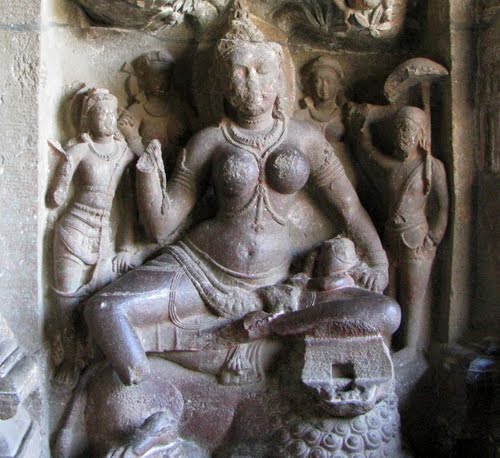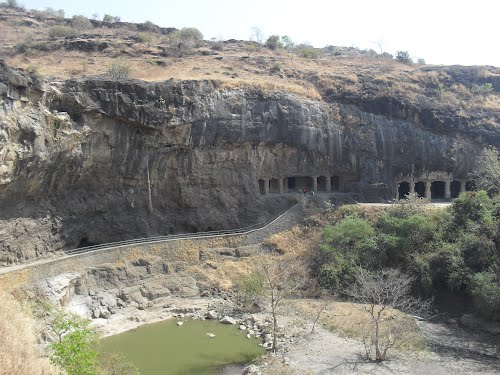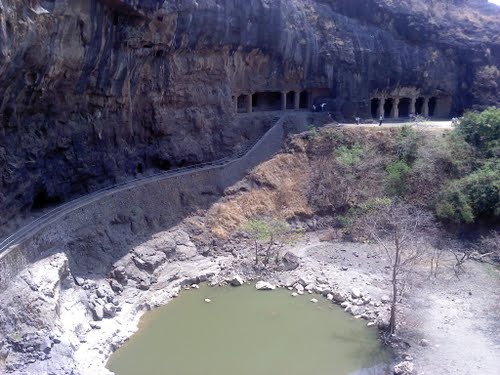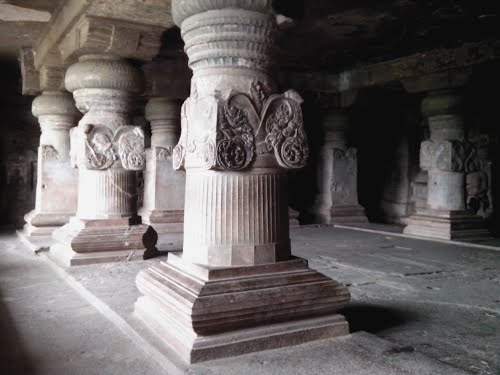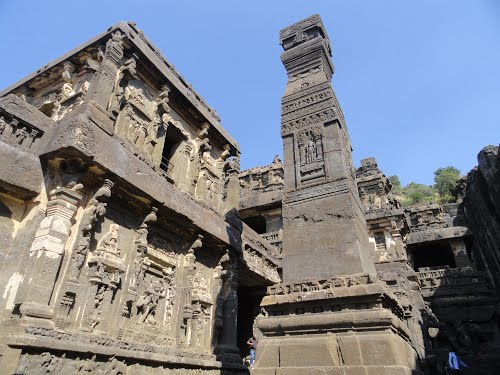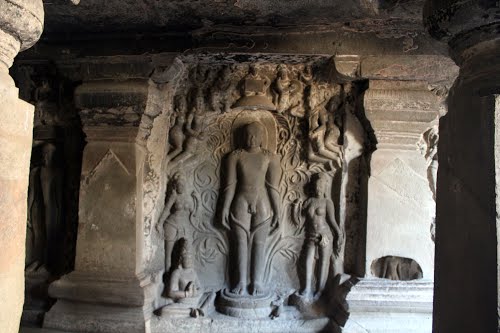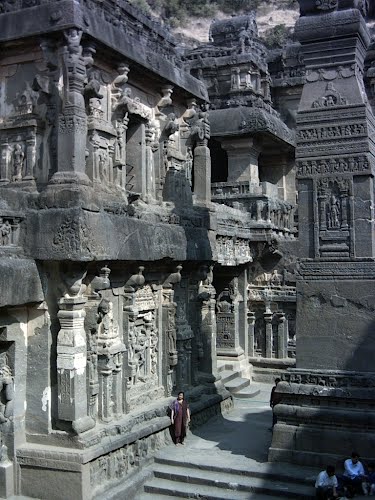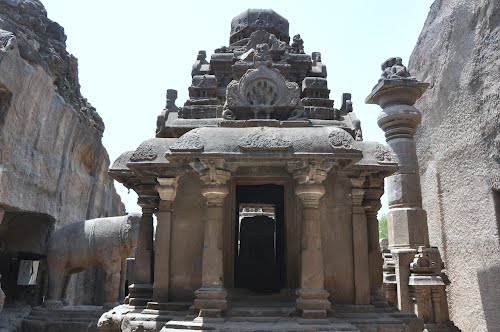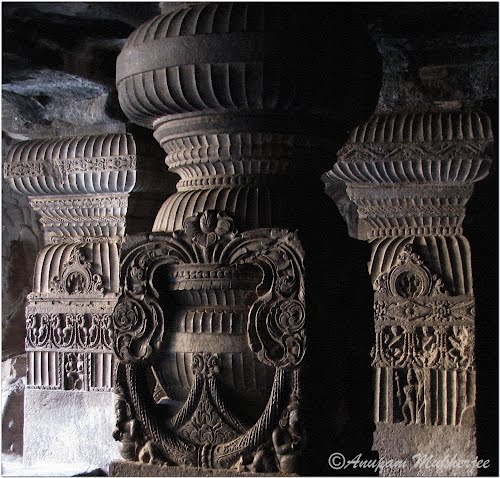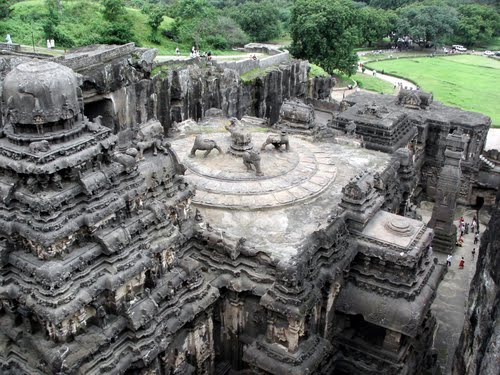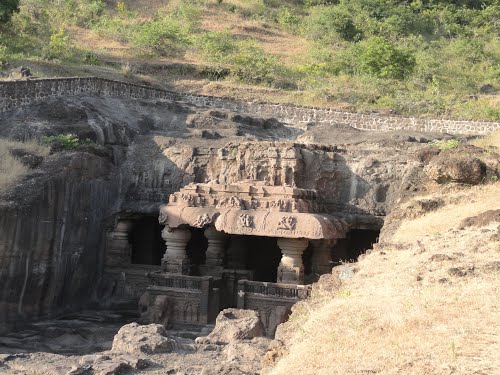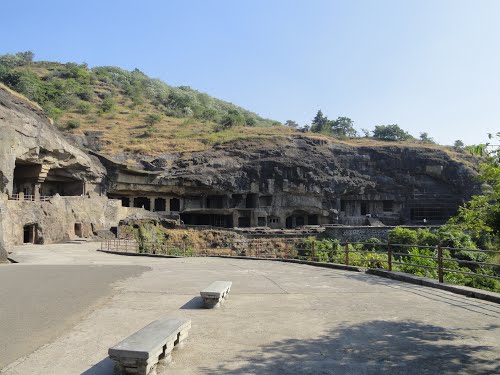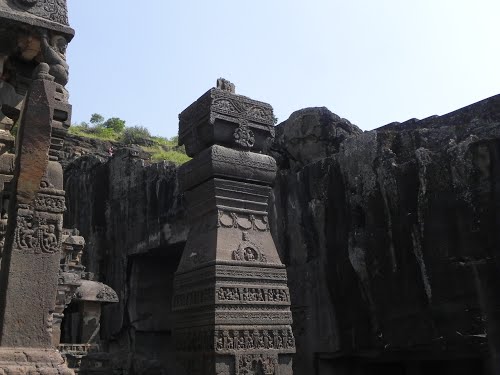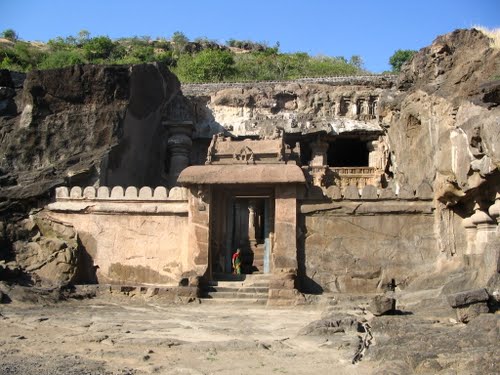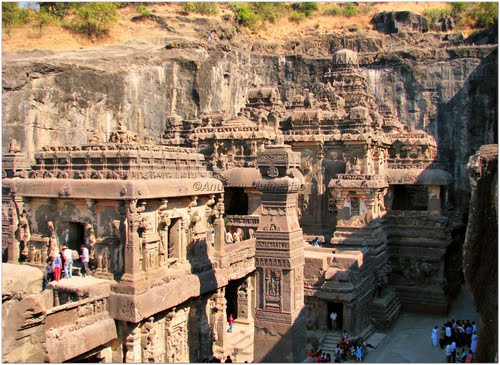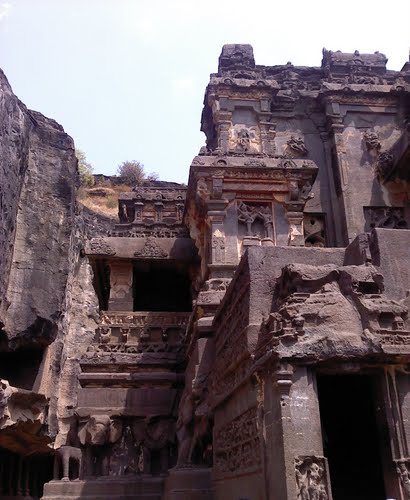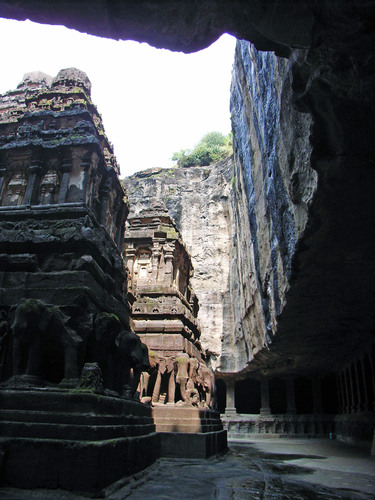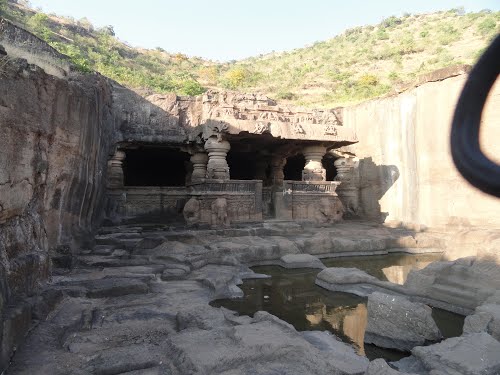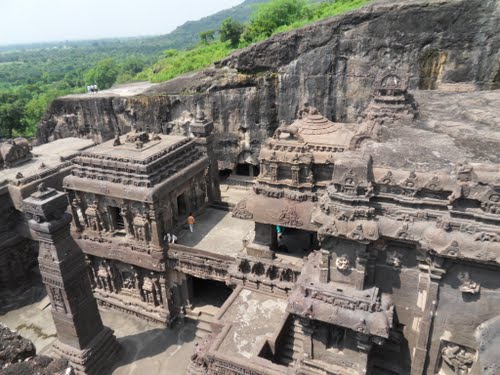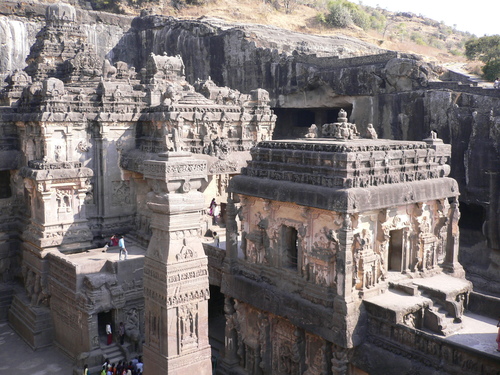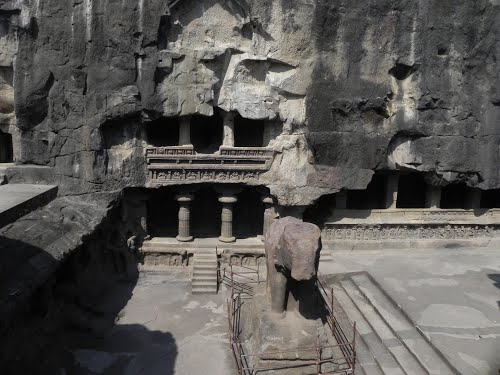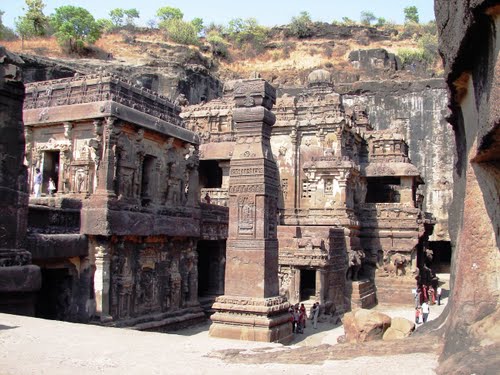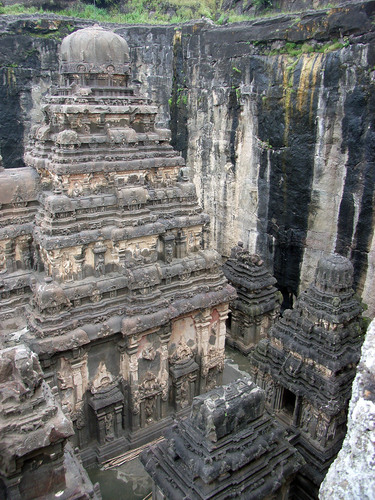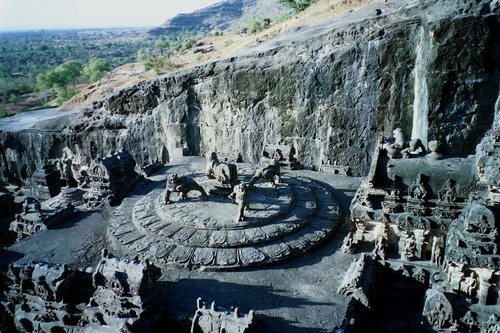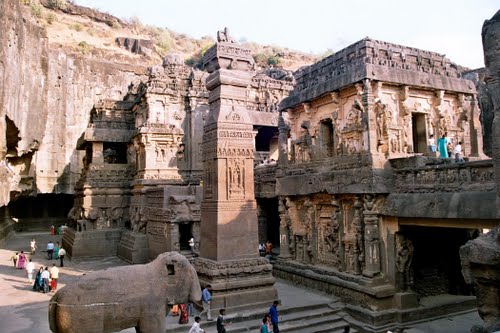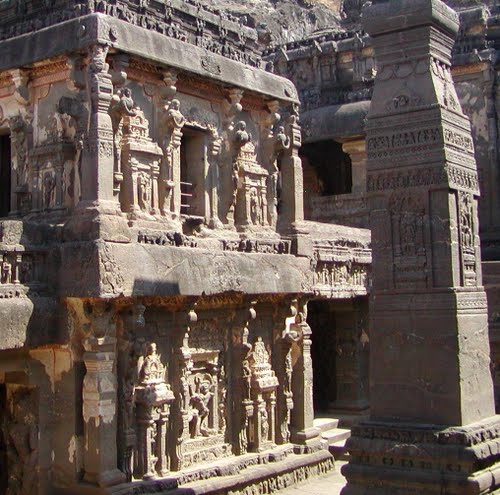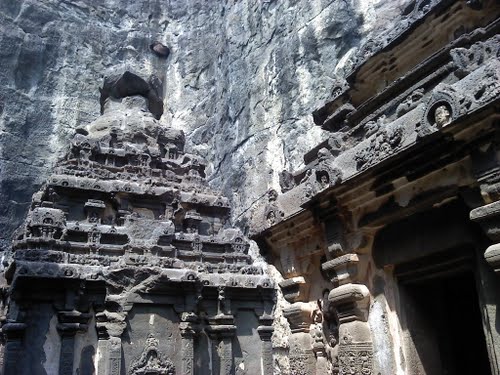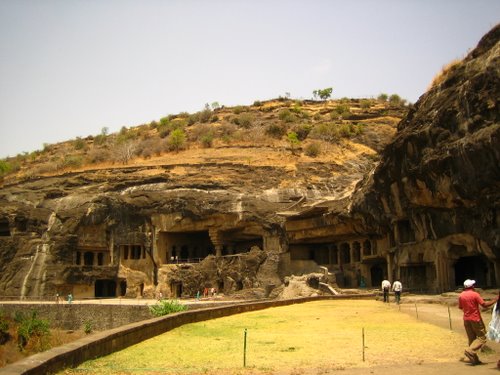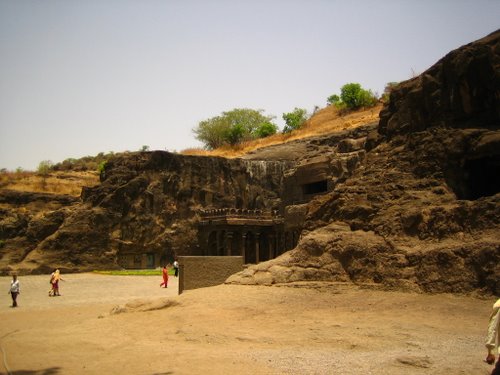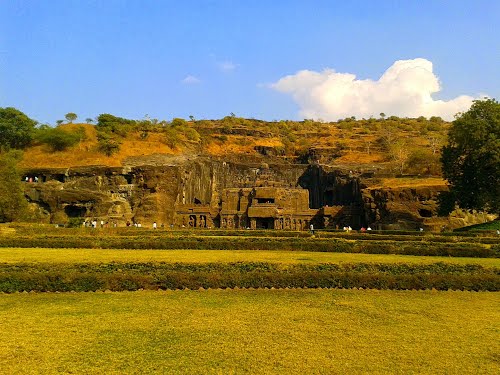Ellora is an archaeological site 29 km north-west of the city of Aurangabad in the Indian state of Maharashtra, built by the Rashtrakuta dynasty (Brahmanical & Buddhist group of caves) and Yadav (Jain group of caves). Well known for its monumental caves, Ellora is an UNESCO World Heritage Site and forms one of major tourist attraction in Marathwada region of Maharashtra Ellora represents the epitome of Indian rock-cut architecture. The 34 "caves" are actually structures excavated out of the vertical face of the Charanandri hills. Hindu, Buddhist and Jain rock-cut temples and viharas and mathas were built between the 5th century and 10th century. The 17 Hindu, 12 Buddhist and 5 Jain caves, built in proximity, demonstrate the religious harmony prevalent during this period of Indian history. It is a protected monument under the Archaeological Survey of India.
History
Ellora is known for Hindu, Buddhist and Jain cave temples built during (6th and 9th centuries) the rule of the Kalachuri, Chalukya and Rashtrakuta dynasties. The Jagannatha Sabha a group of five Jain cave temples of 9th century built by Rashtrakuta. Verul Ellora is around 28 km from Aurangabad, 450 km from Nagpur, 400 km from Mumbai, 150 km from Jalgaon & 200 km from Buldhana.

